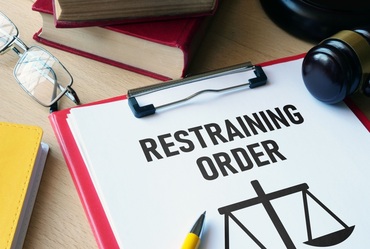A restraining order, also known as a protective order, is a legal directive issued by a court to protect individuals from harassment, abuse, stalking, or threats. These orders can be crucial in ensuring a victim’s safety. However, violating a restraining order is a serious legal offense that can lead to arrest, criminal charges, and long-term legal consequences.
Whether you’re the one seeking protection or the person the order is issued against, it’s essential to understand the implications of violating a restraining order.
What Is a Restraining Order?
A restraining order is typically issued in cases involving:
- Domestic violence
- Stalking or harassment
- Threats or physical assault
- Sexual abuse
- Divorce or child custody disputes
The order may restrict the offender from:
- Contacting the protected person directly or indirectly
- Entering their home, workplace, or school
- Coming within a certain distance of the protected person
Violating any of these terms—even unintentionally—can have serious consequences.
Types of Restraining Orders
Understanding the type of restraining order is key to determining the severity of a violation. Common types include:
- Emergency Protective Orders (EPOs): Issued quickly by law enforcement or judges, often without the presence of the alleged offender.
- Temporary Restraining Orders (TROs): Short-term orders granted before a court hearing.
- Permanent Restraining Orders: Typically last up to several years and are issued after a full hearing.
- Criminal Protective Orders: Imposed during criminal proceedings, especially in cases of domestic violence.
The terms and restrictions vary depending on the type and purpose of the order.
What Constitutes a Violation?
Violating a restraining order means failing to comply with any of its terms, which can include:
- Calling, texting, or emailing the protected person
- Showing up at places the order prohibits
- Sending messages through mutual acquaintances or social media
- Possessing firearms in violation of the order
Intent does not always matter. Even if the contact is accidental or believed to be harmless, it may still be considered a violation.
Legal Penalties for Violating a Restraining Order
The penalties for violating a restraining order depend on the jurisdiction, the circumstances of the violation, and whether it’s a first or repeat offense.
First-Time Violation
- Misdemeanor charges in most states
- Penalties may include:
- Up to 1 year in jail
- Fines up to $1,000
- Mandatory counseling
- Community service
Repeat Violations or Aggravated Offenses
- May be charged as a felony
- Possible penalties:
- Several years in prison
- Higher fines
- Probation violations
- Longer restraining orders
Violations involving violence, threats, or stalking are more likely to lead to felony charges.
How Are Violations Enforced?
Enforcement of a restraining order starts with reporting. Once the protected person notifies law enforcement of a violation, the police may arrest the offender on the spot if there’s probable cause.
Courts take these violations seriously. Judges may:
- Issue immediate arrest warrants
- Increase the length and severity of the order
- Modify custody or visitation rights (if applicable)
- Hold the offender in contempt of court
Defense Against a Restraining Order Violation
Not every alleged violation leads to conviction. Common legal defenses include:
- Lack of intent: Accidental contact or misunderstanding
- False accusation: The protected person may misreport the violation
- Insufficient evidence: Lack of proof that the violation occurred
- Ambiguity in the order: Vague terms that weren’t clearly defined
If you’re accused of violating a restraining order, it’s crucial to seek legal representation immediately.
Long-Term Consequences of a Violation
Beyond jail time and fines, restraining order violations can have lasting effects:
- Criminal record: May impact employment, housing, and reputation
- Loss of firearm rights
- Custody or visitation restrictions (in family law cases)
- Immigration consequences for non-citizens, including deportation
A single violation can impact multiple areas of a person’s life and relationships.
Preventing Violations: What to Do if You’re Subject to an Order
If a restraining order is issued against you:
- Read and understand the terms thoroughly.
- Avoid any contact, even if the protected person initiates it.
- Keep evidence of your compliance (texts, GPS data, witnesses).
- Consult an attorney to discuss your rights and next steps.
It’s always better to be overly cautious. In legal terms, ignorance of the order is not a valid defense.
Final Thoughts
Violating a restraining order is a serious legal matter with immediate and long-term consequences. Whether you’re involved in a domestic dispute, divorce, or another emotionally charged situation, it’s critical to respect the terms of the order.
Understanding your legal rights and responsibilities can help prevent accidental violations, protect your freedom, and ensure a more favorable outcome in court. If you’re facing charges or unsure about your obligations, seek legal counsel promptly.
